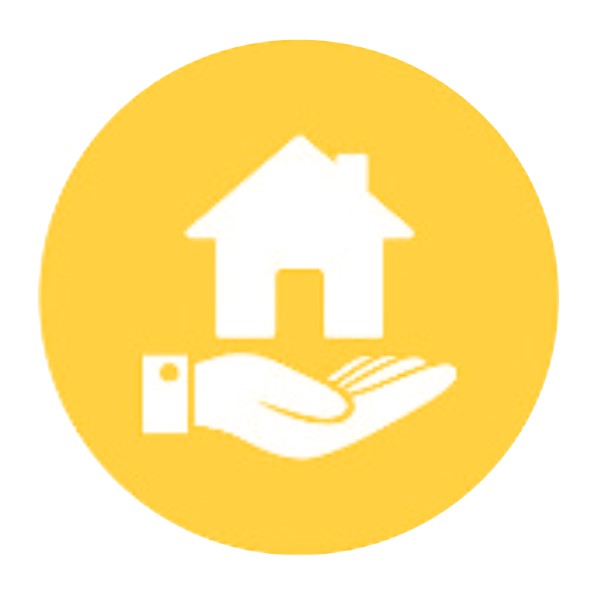We often receive enquires to support families with housing issues, as a result we have put together a new Housing Advice section on the website to provide information, advice and links to organisations that can support families with housing issues.
We have divided advice into sections, click on the links to find out more:
- Social housing tenants
- Private renting tenants
- Homeless or facing homelessness
- Home owners
- Housing advice for those experiencing domestic abuse
There are also common housing issues experienced by many residents including overcrowding, rent arrears, mould, support with cost of living, noisy neighbours and pests, you can find more information about these issues below.
Overcrowding
There are different ways to work out if you live in overcrowded housing:
- room standard rules – based on the sex of people sharing a room
- space standard rules – based on the number and size of rooms in your home
This links tells you about these legal rules, sometimes called ‘statutory overcrowding’.
https://england.shelter.org.uk/housing_advice/repairs/check_if_your_home_is_overcrowded_by_law
Evictions
You don’t have to leave your home straight away if you’ve got a notice from your local council or housing association – this is called a ‘notice seeking possession’.
Your landlord has to follow a process before they can evict you and this will take some time – depending on the reason your landlord is using to evict you.
This link gives advice on if you are facing eviction:
You can’t afford the rent in your council home
If you rent from the council or a housing association you can get help if you’re having problems affording your rent.
If you’ve missed a rent payment you’ll be in ‘arrears’ – this means you owe rent to your council or housing association landlord. It’s important to act quickly because you could be evicted if you get behind with your rent.
Eviction for rent arrears.
If you have rent arrears, your landlord will probably try and evict you. This is called ‘seeking possession’. If they want to seek possession, most landlords must follow a certain procedure. This involves giving you a written notice.
Getting a notice doesn’t always mean you’ll have to leave your home by the date it says. In most cases your landlord still has to get a court order before they can evict you and they can’t apply for a court order until the notice period has run out. The court order is called a ‘possession order’.
Is your home fit to live in?
Landlords have responsibilities to make sure their properties are fit for people to live in. A rented home is unfit to live in when conditions or safety issues are so bad that it’s not reasonable for you to live there.
This could be because the poor conditions:
- affect your health seriously.
- put you at risk of physical harm or injury.
- mean you cannot make full use of your home.
Landlords must make sure your home is fit to live in throughout your tenancy.
Which tenancies are covered?
The rule that a rented home is fit to live in applies to most tenancies regardless of when they started.
This includes if you rent from:
- the council
- a housing association
- a private landlord or letting agent
You were covered straight away if your tenancy started after 19 March 2019 or:
- you signed a new fixed term agreement
- your tenancy became ‘periodic’ (rolling)
Mould
If you rent from a private landlord, you should report any issues with damp and mould to your landlord or your landlord’s managing agent in the first instance. If your landlord fails to deal with the issues, you can contact our Licensing and Housing Enforcement team on 020 8314 6420 or pshe@lewisham.gov.uk.We will liaise with you and your landlord to address any issues with your home. If your landlord fails to comply, we can take enforcement against them.
Repairs
Your landlord is responsible for most repairs in your home. This applies to private landlords, councils and housing associations.
Their responsibilities include repairs to:
- electrical wiring
- gas pipes and boilers
- heating and hot water
- chimneys and ventilation
- sinks, baths, toilets, pipes and drains.
- the structure and exterior of your home, including walls, stairs and bannisters, roof, external doors and windows.
Issues with noisy neighbours
Lewisham Council don’t deal with ordinary domestic noise in residential properties. Find out more about what you can do to resolve problems with your neighbours. https://lewisham.gov.uk/myservices/environment/noise/dealing-with-noisy-neighbours
Pest control
If you are a social housing resident and think you have a pest issue in your home, please call 0800 028 2028 and select option 7, then 2, or email environment@lewishamhomes.org.uk.
https://www.lewishamhomes.org.uk/your-home/your-neighbourhood/environmental-services/pest-control/
If you are a Lewisham resident, landlord, local business or organisation Lewisham Council provide a safe, efficient, cost effective and environmentally aware pest control service. Our team are fully qualified and carry ID.
https://lewisham.gov.uk/myservices/pest-control
Support with Cost of Living
We have a whole section on this website with information about support available with Cost of Living.
https://www.lewishamcfc.org.uk/cost-of-living/
Other useful websites that can support you with housing issues:



